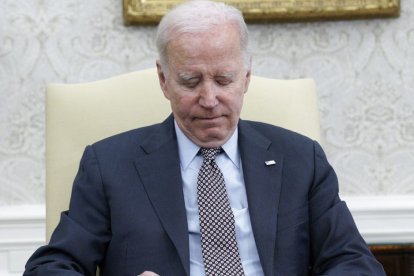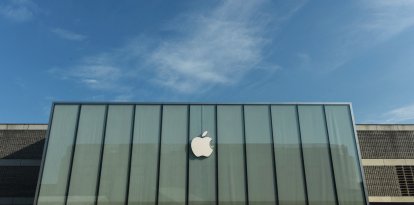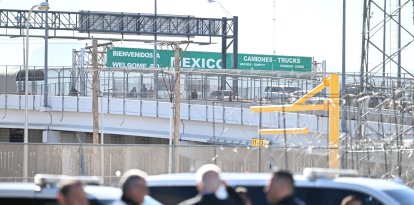SCOTUS rejects Joe Biden's student debt forgiveness plan
The highest judicial body has ruled against one of the president's main electoral promises.

(Cordon Press)
The Supreme Court has ruled against Joe Biden's student debt forgiveness plan by six votes to three in favor. This is the second student-related ruling made by the Supreme Court in less than a day, after it ruled against affirmative action at Harvard and North Carolina universities on Thursday.
Department of Education Et Al v Brown Et Al_voz media by VozMedia on Scribd
What was the student debt forgiveness plan about?
Student debt forgiveness was one of Joe Biden's big campaign promises during his 2020 election campaign. Their goal was to approve it before the mid-term elections, something that ultimately did not happen. His plan consisted of forgiving up to $20,000 for each loan granted to those undergraduates who received Pell Grants (awarded to students enrolled in college with low incomes) and up to $10,000 for those who did not benefit from these grants.
That Biden plan would cost, at a minimum, $230 billion, according to the Committee for a Responsible Federal Budget (CRFB). The Penn Wharton-University of Pennsylvania Budget Model valued the final cost at about $980 billion. The cost per contributor would be no less than $2,100. It would also have devastating consequences for Americans: it would raise inflation, increase college tuition and fees, and hurt taxpayers.
In November 2022, the President had to extend the pause in federal student loan repayment and interest accrual until June 2023. The measure was taken after successive judicial setbacks to the government's loan forgiveness plan. Among those setbacks to which we refer is the decision by a federal appeals court to block the Biden Administration's program. The ruling, issued by a three-judge panel of the Eighth Circuit Court in November 2022, noted that the block will remain in effect until further notice from the Supreme Court, a decision that came this Friday.
A lie? Biden and a frontal opposition to the plan
Such was his obsession with this issue that he went so far as to point out that Congress approved student debt forgiveness "by one or two votes," during an interview with a progressive media outlet in October 2022. This was not the case, which caused the president's comments to be interpreted as a lie. There were also others who opted for a different point of view, calling it one of his usual lapses.
The Biden Administration's plan received several complaints, including one from the Job Creators Network Foundation's (JCNF) Legal Action Fund (LAF), which alleged that the president "overstepped his executive powers," and that Biden's plan "violated" the Administrative Procedure Act.
Another of the demands the president received for this came from the Pacific Legal Foundation. One of the lawyers belonging to this association, Caleb Kruckenberg, asserted that the federal administration's actions were "flagrantly illegal" because "only Congress has the power to pass laws and spend money under the Constitution."
The GOP also fought back against Biden's plan. A group of 22 Republican state governors sent a letter to Joe Biden denouncing his student loan forgiveness plan as shifting the responsibility from the wealthy to "working Americans."
RECOMMENDATION





















